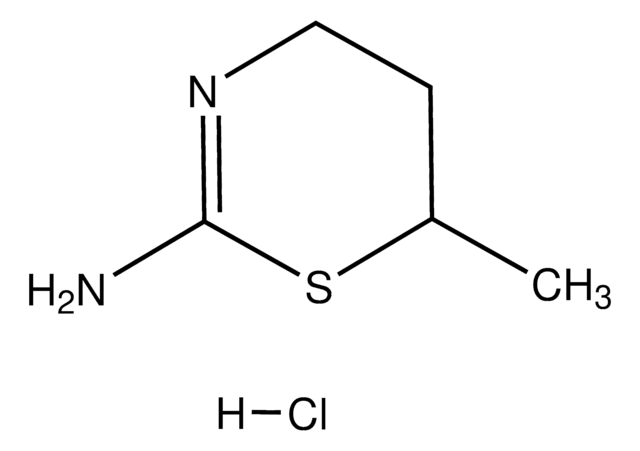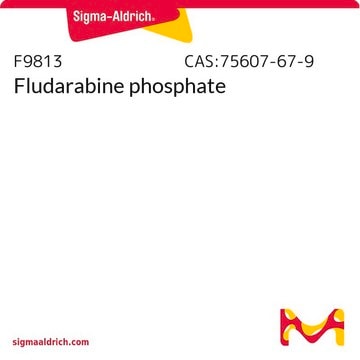C0768
Cyclophosphamide monohydrate
bulk package
Sinónimos:
2-[Bis(2-chloroethyl)amino]tetrahydro-2H-1,3,2-oxazaphosphorine 2-oxide, Cytoxan
About This Item
Productos recomendados
Quality Level
assay
97.0-103.0% (HPLC)
form
powder
mp
49-51 °C (lit.)
storage temp.
2-8°C
SMILES string
[H]O[H].ClCCN(CCCl)P1(=O)NCCCO1
InChI
1S/C7H15Cl2N2O2P.H2O/c8-2-5-11(6-3-9)14(12)10-4-1-7-13-14;/h1-7H2,(H,10,12);1H2
InChI key
PWOQRKCAHTVFLB-UHFFFAOYSA-N
Gene Information
human ... ALDH1A1(216) , ALDH1B1(219)
¿Está buscando productos similares? Visita Guía de comparación de productos
General description
Application
- to test its antitumor effect on TC-1 tumor cells
- as a component of multidrug solution for isolation of resistant human burkitt lymphoma cell line
- in testing antitumor immunity in mouse tumor cell lines
Biochem/physiol Actions
Features and Benefits
signalword
Danger
hcodes
Hazard Classifications
Acute Tox. 3 Oral - Carc. 1B - Muta. 1B - Repr. 1A
Storage Class
6.1C - Combustible acute toxic Cat.3 / toxic compounds or compounds which causing chronic effects
wgk_germany
WGK 3
ppe
Eyeshields, Faceshields, Gloves, type P3 (EN 143) respirator cartridges
Certificados de análisis (COA)
Busque Certificados de análisis (COA) introduciendo el número de lote del producto. Los números de lote se encuentran en la etiqueta del producto después de las palabras «Lot» o «Batch»
¿Ya tiene este producto?
Encuentre la documentación para los productos que ha comprado recientemente en la Biblioteca de documentos.
Los clientes también vieron
Artículos
Cancer research has revealed that the classical model of carcinogenesis, a three step process consisting of initiation, promotion, and progression, is not complete.
Cell cycle phases (G1, S, G2, M) regulate cell growth, DNA replication, and division in proliferating cells.
Cell cycle phases (G1, S, G2, M) regulate cell growth, DNA replication, and division in proliferating cells.
Cell cycle phases (G1, S, G2, M) regulate cell growth, DNA replication, and division in proliferating cells.
Chromatograms
application for HPLCNuestro equipo de científicos tiene experiencia en todas las áreas de investigación: Ciencias de la vida, Ciencia de los materiales, Síntesis química, Cromatografía, Analítica y muchas otras.
Póngase en contacto con el Servicio técnico












